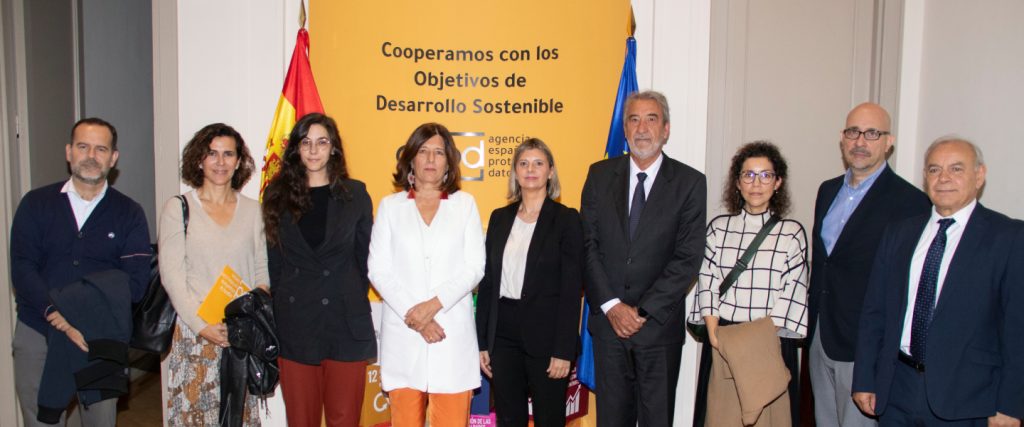
The proposal for a state pact to defend minors in the digital realm has new institutional support: the Juvenile Unit of the Attorney General’s Office (FGE in its Spanish abbreviation). The Juvenile Unit, led by chief prosecutor Eduardo Esteban, is joining this civil society initiative, the result of a consensus between six entities – the European Association for Digital Transition (EADT), promoter of the initiative, plus Save The Children, Fundación ANAR, iCMedia, Dale la Vuelta and UNICEF – and which already has support from the Spanish Data Protection Agency (AEPD).
Institutional support from the FGE was made official at an event held at AEPD headquarters on November 20, coinciding with World Children’s Day. Participating in the event, a press conference, were Eduardo Esteban himself, Mar España, director of the AEPD, and Ana Caballero, vice president of the EADT. Also present were various representatives from the promoting organisations.
This proposal for a state pact started from a shared concern about the risks faced by children and adolescents in digital environments, where they use services designed for adults that can affect their socialisation and exacerbate possible mental health problems such as anxiety and depression, in addition to facilitating violent situations like school bullying and sexual harassment. Moreover, mobile devices have become an entryway to pornographic content, which creates trivialisation of sexual relations, early sexualisation and exposure to inappropriate content.
These problems can lead to criminal situations, ones in which minors can be both victims and perpetrators. The FGE’s latest report expressly warns of the concern of several prosecutors’ offices in the provinces regarding the consequences of the abuse of technology on children and adolescents, as well as the “early consumption of pornographic content” and its effects on “attacks on sexual freedom”. It also pointed out the phenomenon of influencers who incite suicidal behaviour or acts that can cause serious health risks, and that many situations of bullying are perpetrated through cyberbullying.
In addition to these problems, the EADT also wants to emphasise how the business model itself of many of these digital services is harmful to minors, as the companies try to monopolise their users’ attention – time that is taken away from playing, resting, studying, socialising, etc. – with the goal of capturing as much data as possible about their characteristics, tastes and activities. The data from children and adolescents has also become currency in the digital age. And free services are not really so free, since paying with data is indeed paying.




